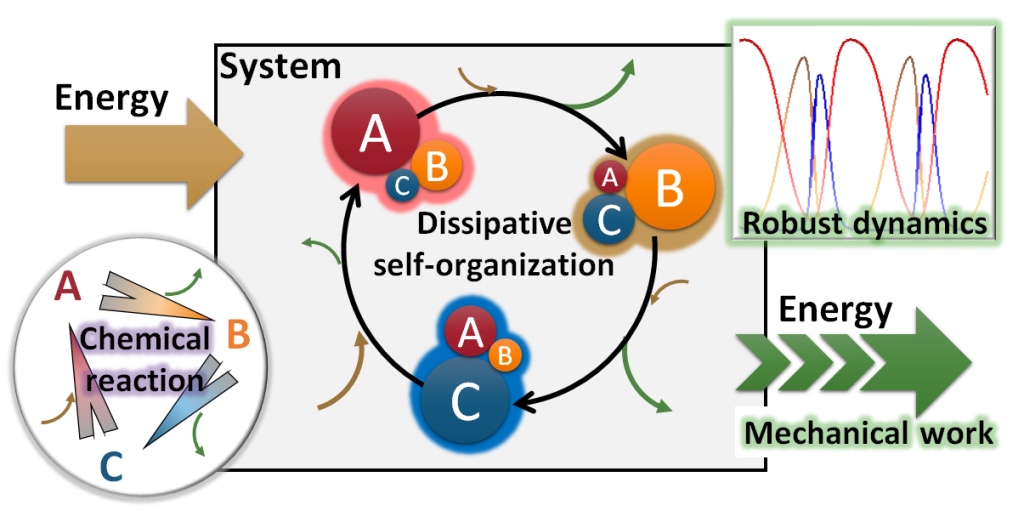The construction of molecular robotic-like objects that imitate living things is an important challenge for current chemists. Such molecular devices are expected to perform their duties robustly to carry out mechanical motion, process information, and make independent decisions. Dissipative self-organization plays an essential role in meeting these purposes. To produce a micro-robot that can perform the above tasks autonomously as a single entity, a function generator is required. Although many elegant review articles featuring chemical devices that mimic biological mechanical functions have been published recently, the dissipative structure, which is the minimum requirement, has not been sufficiently discussed. This article aims to show clearly that dissipative self-organization is a phenomenon involving autonomy, robustness, mechanical functions, and energy transformation. Moreover, the author details the recent experimental results of an autonomous light-driven molecular device that achieves all of these features. In addition, a chemical model of cell-amplification is also discussed to focus on the generation of hierarchical movement by dissipative self-organization. By reviewing this research, it may be perceived that mainstream approaches to synthetic chemistry have not always been appropriate. In summary, the author proposes that the integration of catalytic functions is a key issue for the creation of autonomous microarchitecture.

